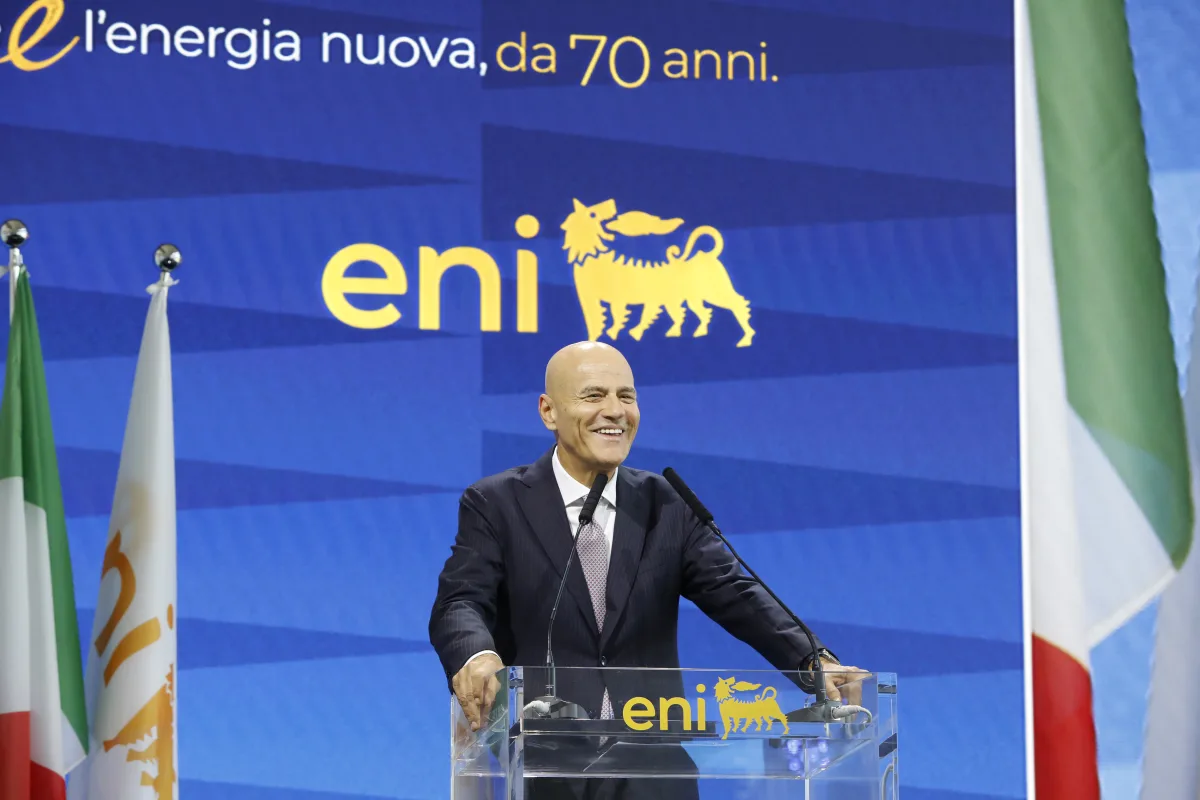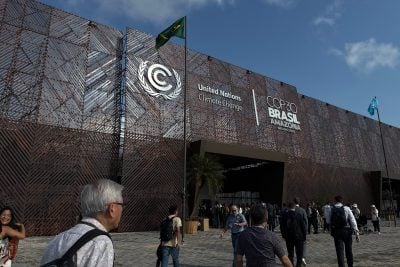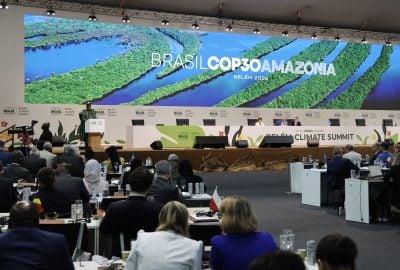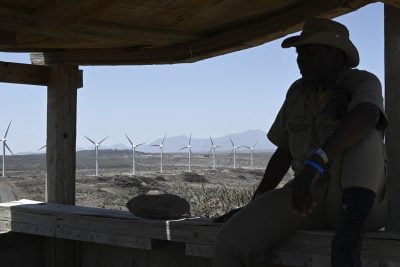The head of Italy’s state-controlled natural gas importer Eni has announced the company’s intention to ramp up investment in Africa as Rome seeks to develop greater economic and political ties with the continent.
Speaking last weekend at a conference in Rome organised by the Brothers of Italy party, whose leader Giorgia Meloni has been prime minister since October last year, Eni’s Claudio Descalzi said that “Italy is ready to invest in Africa […] this is also a necessity because energy is now flowing from south to north and we need to be the ones guiding this flow for our sake and for Africa’s sake.”
Meloni has previously set out her ambitions to turn Italy into one of Europe’s central energy hubs under the “Mattei Plan,” a proposed initiative of investment in African countries and “equal and beneficial” partnerships across the continent.
The plan involves Italy constructing new pipelines to North Africa that would in turn allow Rome to export natural gas and hydrogen to northern European countries such as Germany and Austria, making Italy the “gateway” between Europe and Africa. The Mattei Plan would also have the additional strategic advantage of helping Europe diversify away from Russian oil and gas exports.
The Italian government initially hoped to launch the programme formally in November, however this was delayed by the outbreak of the conflict in Gaza that raised fears of disruption on international energy markets.
In a sign of how central Africa is to her foreign policy and economic agenda, Meloni’s first bilateral visit upon becoming prime minister was to Algeria, and she followed this up with trips across the region to Libya, Ethiopia, and Tunisia. In October, she also travelled to Mozambique and the Republic of Congo in the hope of bolstering energy and economic ties between the countries.
Descalzi’s comments come shortly after Eni announced plans to invest more than $7bn in Egypt and around $8bn in Libya. The company has also launched several “agri-hubs” in various African countries that will grow seeds for biofuel production.
Federico Donelli, Professor of International Relations at the University of Trieste, tells African Business that “there is no doubt that Italy has the potential to become a primary energy hub for the whole of Europe” and more developed relations with Africa “would be important for the country’s economic future.”
“After the Russian invasion of Ukraine, Italy’s ambition to play a leading in the energy sector – mainly gas – has become necessary,” he says. “Its geographical position and expertise in the industry are an excellent starting point. The Draghi and Meloni governments have shown the political will to follow this path, however, investment is lacking, especially in energy and non-energy infrastructure. Italy is lagging behind other countries, such as Turkey, with similar ambitions.”
Donelli adds that the Italian government is also hoping to use its energy and foreign policy in Africa as a way to achieve “enhanced control of migration routes.” Meloni has sought to position herself as an immigration hardliner, with over 120,000 migrants arriving in Italy by sea this year alone.
“At the heart of the Italian agenda is the desire to establish more horizontal relations with African countries and increase their capacity to deal with internal threats and challenges,” Donelli says. This agenda includes plans “to contribute to the institutional and economic development of African countries in order to reduce the causes of migration.”
While Donelli believes that the Mattei Plan “certainly contains interesting and innovative for Italy’s Africa policy,” he also notes that the initiative is “naïve and vague” in parts.
“The main weakness lies in a naïve approach, which also implies a lack of knowledge of the complexities and differences of the African picture,” he says. “Therefore, in my opinion, such investments will not change the root causes of migration flows anyway.”
Want to continue reading? Subscribe today.
You've read all your free articles for this month! Subscribe now to enjoy full access to our content.
Digital Monthly
£8.00 / month
Receive full unlimited access to our articles, opinions, podcasts and more.
Digital Yearly
£70.00 / year
Our best value offer - save £26 and gain access to all of our digital content for an entire year!

 Sign in with Google
Sign in with Google 



